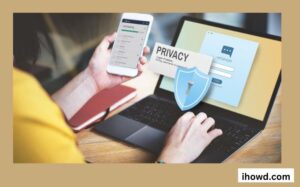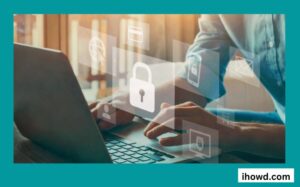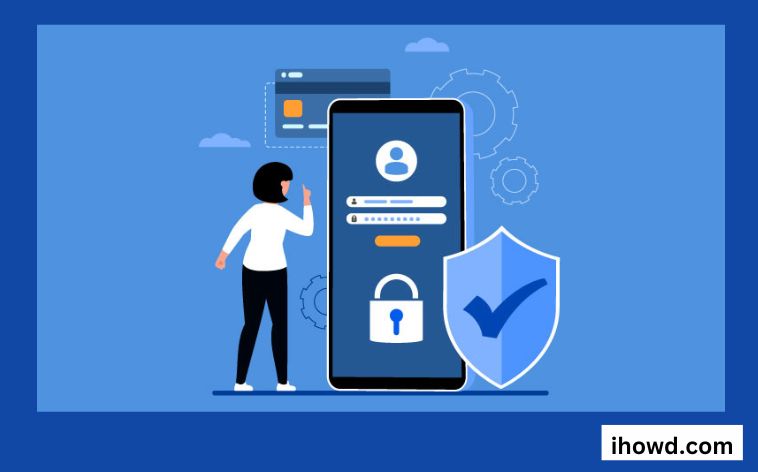It’s more difficult than ever to lead a “private” online life because of significant data breaches and internet tracking. It’s not likely, though.
You can safeguard your privacy, maintain the security of your identity, and lessen the amount of information that businesses gather about you online by taking a few easy measures.
A priceless skill is knowing how to preserve your privacy online. Here is our detailed explanation of internet privacy, what it means for you, and how to safeguard it.
Online privacy: What is it?

Online privacy is certainly a topic you hear about more than ever right now—and not just in the news. Governments and digital behemoths share a major concern about privacy, although the two frequently disagree on what it means.
What does it actually mean, though? Online privacy essentially refers to defending your right to keep personal information to yourself.
Surprisingly, not many places have legislation defending those rights. Even when there are internet privacy laws in place, not all businesses abide by them, as was the case when Cambridge Analytica used Facebook to gather a massive amount of data on American voters.
Internet security and privacy are two distinct but connected concepts. While cybersecurity focuses on unlawful data gathering (like defending your accounts from hackers), privacy typically deals with legal data collecting (like what you publish on Instagram, Snapchat, Facebook, messenger, and other social media platforms).
Also read How to Change Password on Messenger?
There is, however, a lot of overlap. Privacy is improved by strong security, while strong security is maintained by improved privacy. You may enhance both by performing a few straightforward actions.
How to Prevent Identity Theft Online

1. Refrain from disclosing your personal information.
The first step is simple. Stop sharing it. Simply asking someone for their information is a popular and efficient method of obtaining data, whether it is when making a purchase, signing up for an online organization, or responding to a phishing email. We frequently just give up because we are being courteous or pressed for time.
Be wary of unsolicited emails that convey a “feeling of urgency” or threaten to shut your accounts or restrict your access if you don’t respond.
You have the right to decline, especially if it’s unclear how the requested service or transaction necessitates the information. To purchase a pair of jeans, I don’t have to divulge my complete address. Additionally, avoid sending or receiving confidential information over the phone or email (unless you initiated the call).
2. Verify the permissions of your mobile app
Personal data has consequences for mobile apps as well. To download the program, many demands that you agree to give them particular permissions (such as access to your contacts, images, and GPS position). In many circumstances, the permissions are unrelated to how the software works.
After downloading an app, it’s a good idea to go to the permissions settings and turn off any features you don’t want. Apply this to any existing apps as well as new ones.
3. Only enable cookies when necessary.
One efficient method of protecting your personal information online is to just enable cookies when you actually need them. Many websites depend on cookies for data collection and storage. They might, nonetheless, raise privacy issues. Fortunately, cookies are typically secure, and you may choose to disable them after using them.
Make sure you comprehend what cookies are and how they operate before permitting them. Most of the time, cookies are just necessary for website visits or service subscriptions. You may manage the kinds of cookies your browser accepts as well. Some websites require your express approval before allowing cookies.
Also read How to turn off pop up blocker?
4. Produce robust passwords and use them
That indicates a minimum of 12 characters. The simplest technique to strengthen a password is typical to make it longer. To make your password more memorable, think about using a passphrase made up of random words; nevertheless, stay away from utilizing popular terms or expressions. Check out this Password Checklist for additional advice.
5. Limit your social media sharing.
Everyone has at least one buddy that shares far too many personal details about their life online. This not only has the potential to be unpleasant, but it also poses a risk to your personal data. When publishing your location, hometown, birthday, or other sensitive information, use caution and check your privacy settings to ensure that you are aware of who is viewing your postings.
6. Detect Identity Theft
Visit IdentityTheft.gov if you believe someone has access to your accounts or your personal information. There, you’ll learn how to report and deal with identity theft as well as the measures to take in order to determine whether your identity has been misused.
Conclusion
It’s crucial to be aware of the dangers involved with sharing personal information as we continue to live our lives online. You may help keep your information safe from thieves by taking precautions to protect your personal data.
See IhowD for more information
